Blog
Press Release: March 31, 2015
LBT Core Values – Dialogue
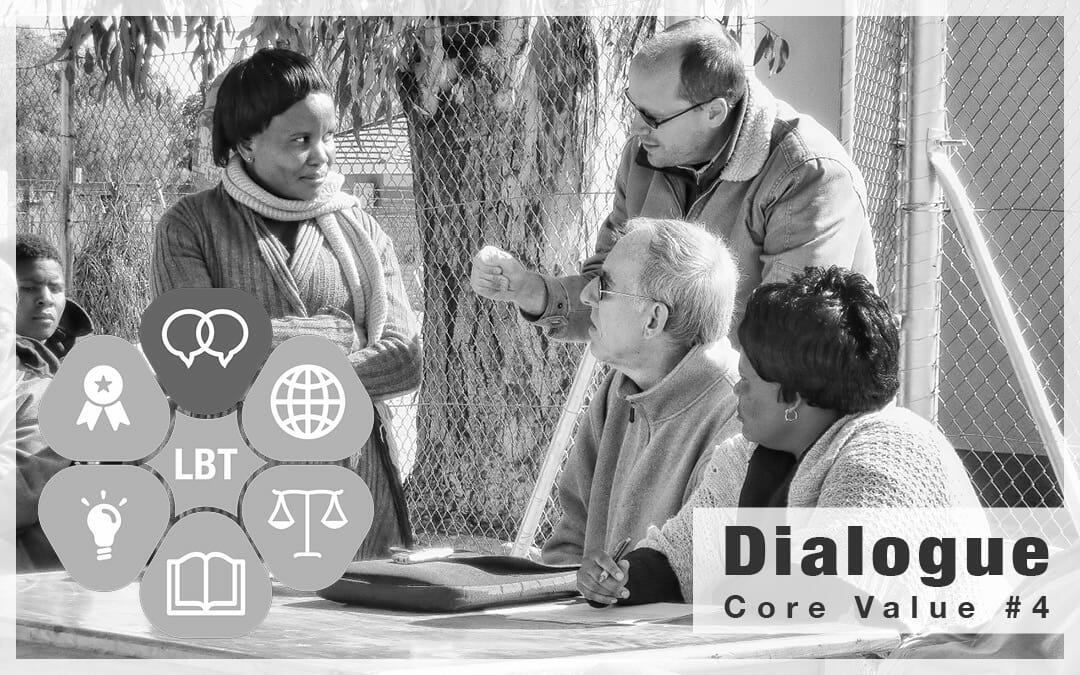
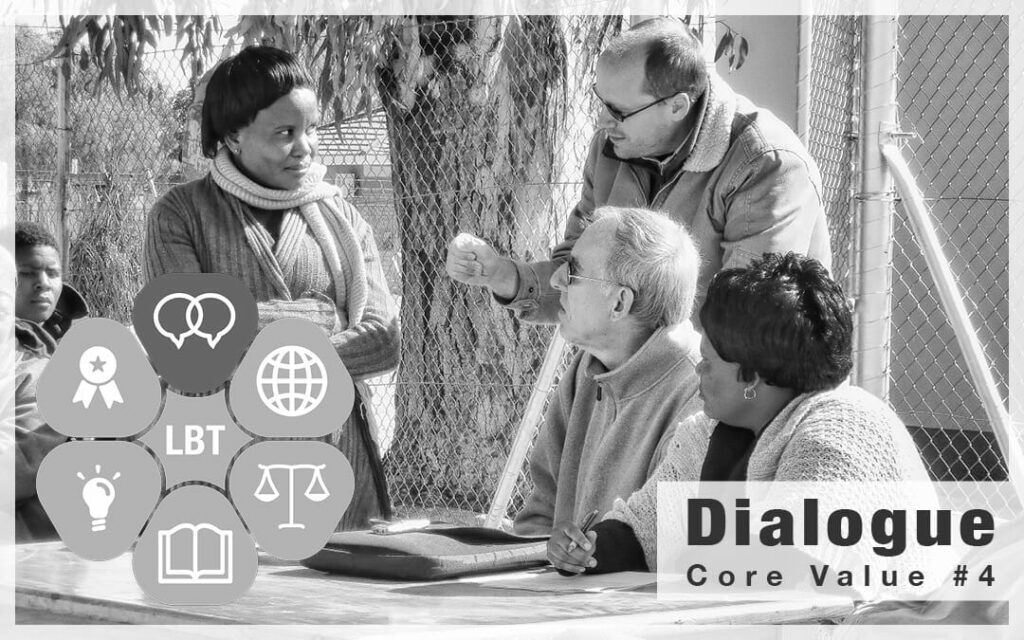
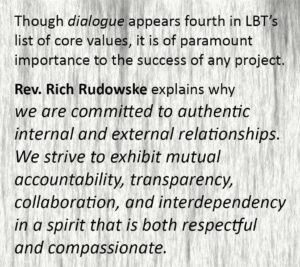
The monkey and the fish
In his book, Cross Cultural Connections, Duane Elmer tells a fable about a monkey and a fish. From his perch in a tree, the monkey sees the fish struggling against the current in a rapidly rushing river below him. He decides that he should help the fish. So he goes down to the water’s edge, reaches in and pulls out the fish, depositing him safely on dry ground. He then sits back with satisfaction and watches as the fish flops around on the ground, obviously expressing his joy and thanksgiving at the help that he has received from the monkey.
Is it really helping?
The parallels to mission work are palpable. It is easy for folks from the Western world to see and diagnose a problem from our perspective and go in with solutions to fix it. This is particularly true in our American culture, which highly values efficiency and productivity. But often our solutions are based partially on how we see the world and how we would approach a situation. We don’t necessarily recognize that there may be harmful aspects to how we plan to ‘help’. Certainly the monkey thought that if he were in the same position as the fish he would want the kind of help he was offering. But it turned out to be deadly for the fish.
The need to learn
So what’s the solution? Two way communication, or dialogue, is needed. In today’s mission world, there are very few, if any, contexts in the world where as a missionary, you need to go in and blaze a trail to reach unreached people. There is almost always some group or organization in the host country that we can and should partner with in order to work together for the good of the people that we have come to serve. As guests in a new culture, our missionaries are expected to approach their work with a high focus on their need to learn as much as, if not more, than they teach. We strive to enter the contexts in which we work as learners and guests, not teachers and directors.
The key is…dialogue
Yet we do come with skills and expertise that our partners are looking for and for which they invited us. The key is that there has to be constant, thoughtful, and transparent dialogue. In the five years that I had the privilege of serving among the Bakgalagari people of Botswana, I spent many hours with a committee of chiefs and pastors visiting the traditional community gathering forums (rikgota) in each village to assess what the churches and community hoped for with respect to development of their language and scripture translation.
Speak last
In the early days, I usually spoke first and talked at length about what we could do and offer. As time went on, I learned that the first one to speak was often given little respect by the tribe and those who spoke last carried the most weight. I learned to wait, to be quiet and listen. I learned how to dialogue in Shekgalagari culture. Only then could I really learn how to help or even what ‘help’ was from their perspective.
Dialogue is a core value for Lutheran Bible Translators. Our vision is that the word would be proclaimed to all people. Yet if the gospel is preached but not understood, has it been proclaimed? We can’t know how to help people until we first learn how to talk to them as peers, as students, and then, perhaps, as teachers.

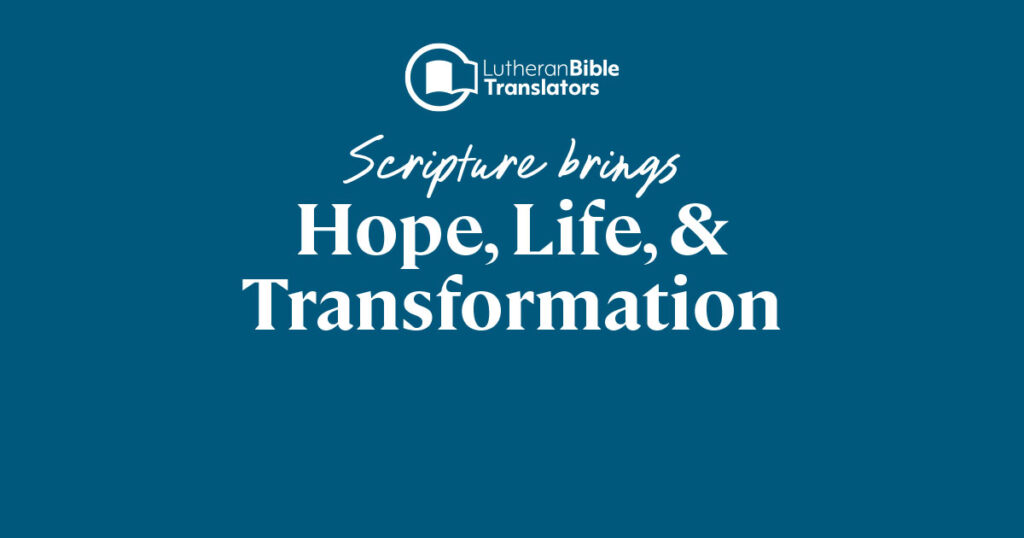


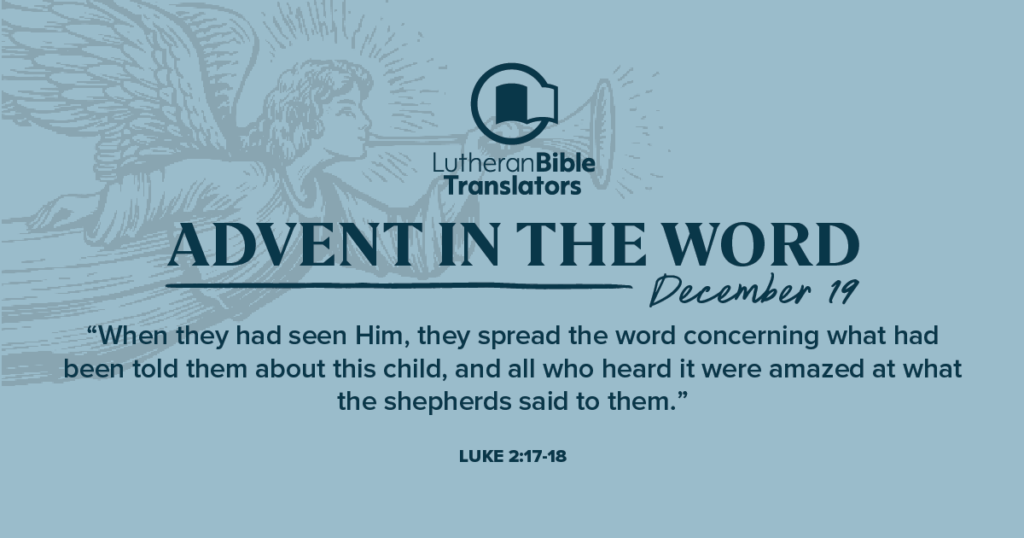

Leave a Reply
You must be logged in to post a comment.